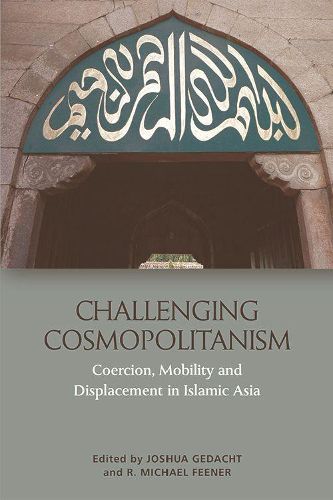Readings Newsletter
Become a Readings Member to make your shopping experience even easier.
Sign in or sign up for free!
You’re not far away from qualifying for FREE standard shipping within Australia
You’ve qualified for FREE standard shipping within Australia
The cart is loading…






Cosmopolitanism has emerged as a key category in Islamic Studies, defining models of Muslim mobility, pluralism and tolerance that challenge popular perceptions of religious extremism. Such celebrations and valorisations of mobility and trans-regional consciousness, however, tend to conflate border-crossing with opportunity and social diversity with ethical progress. At the same time, they generally disregard the ways in which such forms of cosmopolitanism have been entwined with structures of domination, economic control and violence. This volume addresses these issues in ways that help to contextualize contemporary issues such as the global refugee crisis in relation to longer histories of Muslim mobility and coercion.
Featuring new historical and ethnographic research on China and Southeast Asia, this book explores how power and violence have shaped the experiences of Sufis and state-builders, as well as refugees and rebels, contributing to a more nuanced understanding of Islamic cosmopolitanism.
$9.00 standard shipping within Australia
FREE standard shipping within Australia for orders over $100.00
Express & International shipping calculated at checkout
Cosmopolitanism has emerged as a key category in Islamic Studies, defining models of Muslim mobility, pluralism and tolerance that challenge popular perceptions of religious extremism. Such celebrations and valorisations of mobility and trans-regional consciousness, however, tend to conflate border-crossing with opportunity and social diversity with ethical progress. At the same time, they generally disregard the ways in which such forms of cosmopolitanism have been entwined with structures of domination, economic control and violence. This volume addresses these issues in ways that help to contextualize contemporary issues such as the global refugee crisis in relation to longer histories of Muslim mobility and coercion.
Featuring new historical and ethnographic research on China and Southeast Asia, this book explores how power and violence have shaped the experiences of Sufis and state-builders, as well as refugees and rebels, contributing to a more nuanced understanding of Islamic cosmopolitanism.